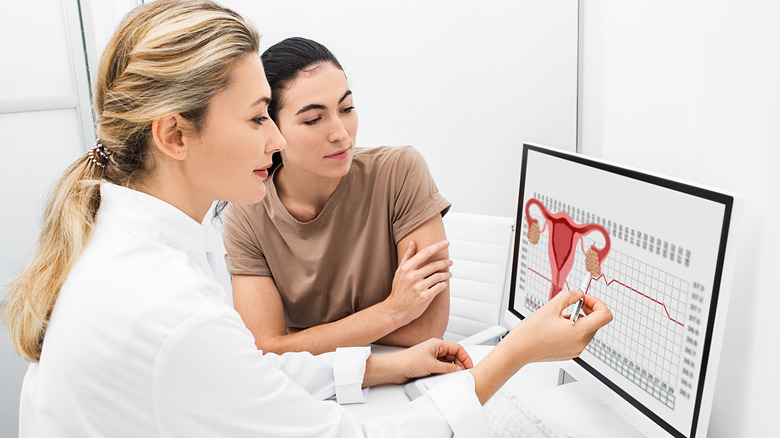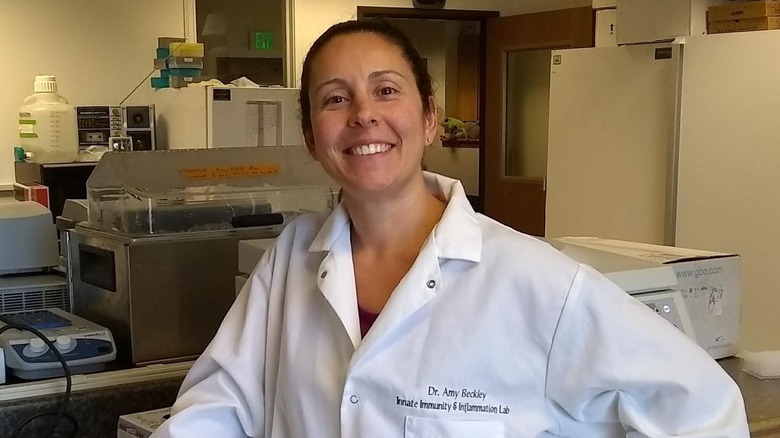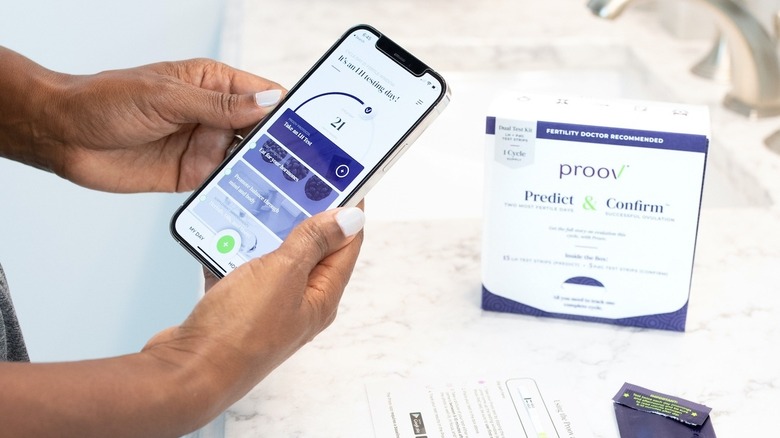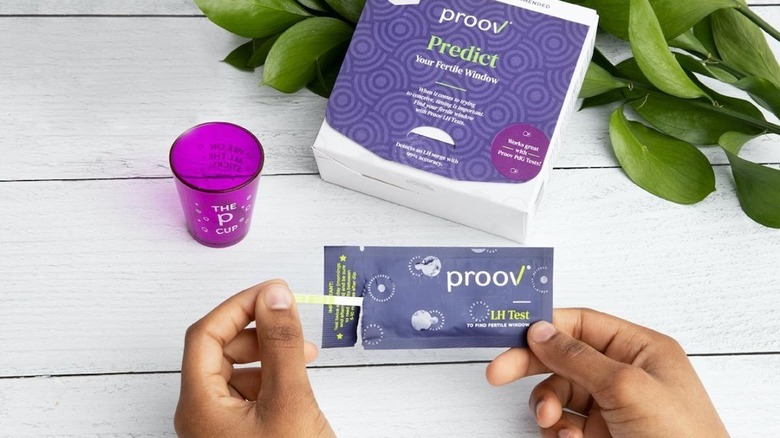Fertility Specialist Dr. Amy Beckley On Home Hormone Testing For Your Cycles - Exclusive Interview
When Dr. Amy Beckley graduated with a doctorate degree in pharmacology, she never imagined that she'd end up working in the fertility field. Beckley started her career researching breast cancer, specifically how the cancer cells migrate to other places in the body. For years, she continued to research genetics and pharmacology.
Then, the universe presented her with a series of events that changed the course of her life and her career. Beckley started trying to get pregnant, and nothing went the way she thought it would. After several miscarriages, she was diagnosed with unexplained infertility, but a seasoned scientist like Beckley couldn't accept "unexplained" as an answer. So, she started on a new research project — figuring out why she couldn't get pregnant.
Working closely with her doctor, Beckley ran test after test, including hormone tests, and scoured research papers looking for the source of her problem. She found a hormone imbalance that could be easily remedied by taking progesterone. Soon after the started taking progesterone, Beckley conceived.
Her experience mad Beckley realize how crucial it is for people assigned female at birth to understand their hormonal cycles. She set out to develop at home hormone testing that anyone could easily use, and Proov was born.
In an exclusive interview with Health Digest, Beckley explained the issues hormonal imbalances can cause, why understanding your hormonal cycles is crucial to understanding your health, and how her Proov tests can help.
Seeking answers to unexplained infertility
Can you tell us a bit about your background and the research you've done on breast cancer?
During my PhD thesis work, I worked on the mechanisms in which a breast cancer cell moves outside of the breast and into the lung, where it becomes very dangerous. If we can understand how cells become metastatic, we can work towards preventing breast cancer mortalities. I received my PhD in 2007 and ever since then, I have loved working to understand how a normal cellular process goes wrong during disease progression.
What made you decide to shift your focus to infertility?
It was my personal battle with infertility and recurrent miscarriage that made me very passionate about reproductive hormones and how they work (or don't work during infertility). I learned that it was a simple hormone imbalance that was leading to my inability to carry a baby to term. That led me to invent a better hormone monitoring test system.
You actually helped your doctor diagnose the cause of your own infertility. How did you discover what was wrong and how was the issue resolved?
I had a lot of conversations with my very understanding doctor and also kept reviewing the literature. There was a ton of research on the benefit of progesterone in the context of in vitro fertilization (IVF) but not much research on progesterone during a natural cycle. After analyzing this research, it was determined that progesterone during a natural cycle (not in the context of IVF) would either do nothing or help. It turned out to help, and not just [for] me, but studies show it can help about 20-30% of women carry to term.
Understanding hormonal cycles and balance
Why is it so important for people assigned female at birth to understand their menstrual cycles and the hormonal fluctuations that occur?
Because the menstrual cycle controls every aspect of a women's life from puberty to menopause. When the cycle is off balance, it can lead to PMS, heavy or painful periods, infertility, or major menopause symptoms. At Proov, we want women to think of their cycle as their superpower, not something that is holding them back.
What kind of issues can hormone imbalances cause?
Heart disease, osteoporosis, memory loss, infertility, weight gain, miscarriage, dry/thin skin, hair loss, brittle nails. I mean hormones really affect almost each aspect of a woman's life and can lead to serious health issues if hormones are out of balance or not regulated correctly.
How does information about hormone levels help people get pregnant?
Hormones can tell women when they are most fertile and help them to time intercourse appropriately. Hormones can also tell women that their uterus is prepared for implantation and pregnancy. Hormones can also tell women if they have enough eggs left or are nearing menopause and their fertile years are coming to an end. All of these are helpful for family planning.
At home hormone testing
How did you come up with the idea for the Proov tests and how did you bring that idea to life?
I was diagnosed with "unexplained infertility" so that basically meant that there was no good diagnostic test to figure out what was wrong with me. I later found out I suffered from an ovulation issue in which I was not producing enough progesterone during my implantation window.
I wanted to create a diagnostic test to detect these problems so they could be treated properly. To launch my idea, I partnered with another infertile woman, and we did a crowdfunding campaign to raise enough money to build a prototype. This campaign was funded within 48 hours.
How do the Proov tests work?
Proov works by monitoring hormones in their first morning urine. Women simply download our free app, input their cycle start dates, we prompt them what days to test and give them a cycle report at the end. All testing is done at home and actual hormone values and next steps are displayed to the user in only 10 minutes. This information can be given to their doctor to aid in treatment, allowing women to get help sooner during their journey.
How are Proov tests different from ovulation tests?
Ovulation tests are used to help a woman know when they might be most fertile to time intercourse. Proov tests work by monitoring the whole cycle to not only find the fertile window but also to know her ovarian reserve and most importantly to identify any issue with ovulation that could be leading to an inability to conceive. We can help women discover and treat the main cause of infertility, without needing invasive and costly IVF.
How can people use the information from the Proov tests?
This information can guide a faster route to treatment. Ovulation induction is a simple procedure and is very successful, if diagnosed properly. Proov enables better diagnosis and personalized ovulation induction treatment protocols. This has saved thousands of women from needing expensive IVF procedures.
How is the data from the Proov tests and in the app protected?
We have always been passionate about protecting women's data. All data is encrypted both in transit and at rest. We have never and will never sell data. We follow all HIPPA rules regarding data privacy. Finally, we let women control their data and have enabled a "kill switch" in the app, so if at any point the user wants to delete her data, she can simply go into the app and delete her account. That removes all records both on her physical device and our servers.
To learn more about Amy Beckley and the work she is doing at Proov, please follow the company on Facebook, Twitter, and Instagram, and be sure to check out their blog for more insights into their innovative efforts for women's testing at home.




